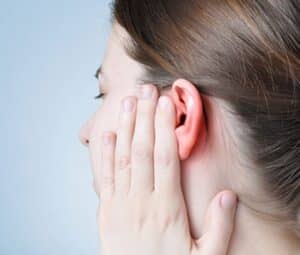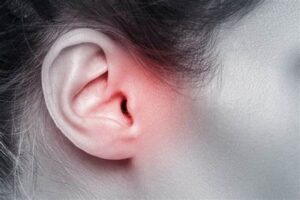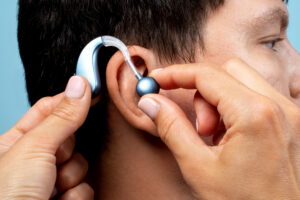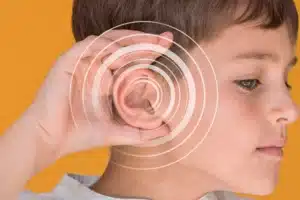Ever heard a ringing in your ears that no one else seems to notice? You might have brushed it off, thinking it was nothing. But what if that ringing persisted, following you into the quiet moments of your day? That, my friend, might be tinnitus, a common auditory condition that has puzzled many. Why does it happen? What can be done about it? These are questions we’re diving into today. Our aim is to enlighten readers on what tinnitus is, its causes, symptoms, and potential treatment options.
Understanding Tinnitus: More Than Just Ringing in the Ears

Tinnitus isn’t just about hearing a ringing sound. It’s an experience that varies widely among individuals, affecting about 15-20% of people at some point in their lives. Yes, you heard that right. It’s that common. But what exactly is tinnitus? It’s the perception of noise or ringing in the ears when no external sound is present. Annoying, right? Imagine trying to find peace and quiet, only to be accompanied by a constant, unwelcome noise.
Now, let’s break it down a bit. Tinnitus can be subjective or objective. What’s the difference, you ask? Well, subjective tinnitus is the type only you can hear. It’s the most common form, where the sounds are internal. On the other hand, objective tinnitus is a rare breed. This type can actually be heard by your doctor during an examination. It’s true! It might sound like something from a sci-fi movie, but it’s a real medical phenomenon.
Why does this distinction matter? Because understanding whether your tinnitus is subjective or objective can guide the approach to managing it. Each type has different causes and, therefore, may require different treatments.
So, why is tinnitus more than just a ringing in the ears? Because it can manifest as buzzing, hissing, whistling, or even roaring sounds. It’s like having your own personal sound machine that you never asked for. And while it might not physically hurt, it can be a source of significant distress, impacting your ability to concentrate, sleep, or simply enjoy silence.
The Causes Behind the Condition
Have you ever left a concert with your ears ringing? That’s a common trigger of tinnitus, but the story doesn’t end there. Tinnitus can sneak up on you for a multitude of reasons. Hearing loss, for instance, is a frequent culprit. As we age or expose ourselves to loud noises, our hearing can suffer, sometimes resulting in tinnitus. Surprising, right?
But what about those of us who’ve lived a life of quietude? Tinnitus doesn’t discriminate. Certain health conditions, like high blood pressure or diabetes, can also invite it into your life. Even medications can be the unexpected guest at the party, leading to tinnitus as a side effect. Ever thought a pill for your headache could make your ears ring?
And here’s a curveball: stress and anxiety can also play a significant role. Ever been so stressed that you start hearing things? That could be tinnitus knocking on your door. Makes you wonder, doesn’t it?
Recognizing the Signs
So, what does tinnitus sound like? If you’re expecting just ringing, prepare to be surprised. Tinnitus can mimic a whole concert in your head—buzzing, hissing, whistling, or even the sound of crickets. Each person’s experience is as unique as their fingerprint.
But it’s not just about the sounds. Imagine trying to fall asleep or concentrate on a task, but there’s a constant noise only you can hear. Frustrating, isn’t it? Tinnitus can sneak into every quiet moment, turning silence into a myth. It can affect your sleep, your focus, and, let’s be honest, your sanity. Ever tried to have a conversation while someone whispers in your ear? That’s a day in the life with tinnitus.
How Professionals Pinpoint the Problem
So, you think you might have tinnitus. What now? Well, it’s time to see a professional. But how do they figure out something you can only hear? First off, they’ll chat with you. Understanding your history and symptoms is key.
Next, it’s time for some tests. A hearing test is usually first on the list. It can tell a lot about what’s going on inside. But there’s more—imaging tests like MRIs or CT scans can help rule out other issues. And sometimes, they’ll even measure the sound in your ear. Yes, that’s a thing!
Diagnosing tinnitus isn’t always straightforward. But with the right tests and a good doctor, you can start to unravel the mystery of that noise in your head. Ready to take the first step? Remember, knowledge is power, especially when it comes to tinnitus.
Navigating Through the Noise: Treatment Options for Tinnitus

So, you’ve got tinnitus and you’re wondering, “What now?” Good news! There are ways to make that unwelcome noise a bit more bearable. Let’s explore, shall we?
First up, sound therapy. Ever thought about fighting noise with noise? It might sound counterintuitive, but it works. White noise machines, apps, or even a simple fan can help mask the tinnitus, giving your brain something else to focus on. Cool, right?
Then there’s cognitive-behavioral therapy (CBT). It’s not just for stress or anxiety. CBT can help you change the way you think about and react to tinnitus. Less distress means less impact on your life. Imagine not being bothered by that noise. It’s possible!
And guess what? Researchers are on the case, looking for new ways to quiet that internal soundtrack. From medications to innovative therapies, the future looks promising. Excited yet?
Living With Tinnitus: Tips for Managing Day-to-Day
Living with tinnitus can be a challenge, but it’s not insurmountable. Let’s talk tips and tricks to ease your journey.
Start with your environment. Make it your ally. Soft background music or ambient sounds can make tinnitus less noticeable. Why let tinnitus take center stage?
Next, focus on your well-being. Stress can crank up the volume on tinnitus. Finding ways to relax, whether through yoga, meditation, or hobbies, can turn the volume down. Ever noticed how tinnitus takes a backseat when you’re relaxed?
And let’s not forget about sleep. Tinnitus loves to mess with it. Create a bedtime routine that invites sleep, even if tinnitus tries to crash the party. Cool, dark, and quiet rooms—except for a sound machine, perhaps—are your best friends.
The Future of Tinnitus Treatment: A Glimpse Into What’s Next
Curious about the future of tinnitus treatment? There’s a lot brewing in the world of research. New technologies, like targeted brain stimulation, are being explored. Imagine a world where tinnitus can be dialed down like the volume on your radio. It’s not as far-fetched as it sounds.
Researchers are also digging into the genetic factors of tinnitus. What if a simple test could predict your risk or guide your treatment? The possibilities are endless.
And then there’s the potential for personalized medicine. Tailored treatments based on your unique biology could make a world of difference. Ready for a future where tinnitus is just a minor annoyance?
The journey with tinnitus may have its ups and downs, but with the right strategies and hope on the horizon, navigating through the noise can become a bit easier. Who knows what breakthroughs tomorrow may bring? Stay tuned, stay hopeful, and remember, you’re not alone in this.
Turning Down the Volume on Tinnitus

We’ve journeyed through the world of tinnitus together, haven’t we? From understanding what tinnitus is, to exploring its causes and recognizing its signs. It’s been quite the ride.
Remember how we talked about treatments? Sound therapy and cognitive-behavioral therapy are just the beginning. And let’s not forget the promising research paving the way for future breakthroughs. Feeling hopeful yet?
Living with tinnitus might seem daunting at first. But with the right strategies and a bit of adjustment, it becomes manageable. Ever thought you could coexist peacefully with tinnitus? Well, you can.
If you’re reading this and nodding along, thinking, “That sounds like me,” what’s stopping you from seeking help? A visit to Listen Hear Diagnostics might just be the first step towards turning down the volume on your tinnitus. Professional advice can make a world of difference. Don’t go at it alone.
We’ve shared tips, treatments, and a peek into the future of managing tinnitus. But the most important takeaway? There’s hope. Tinnitus doesn’t have to control your life. You’ve got this.
So, ready to turn down the volume on tinnitus? Remember, you’re not alone. With the right support and information, you can lead a life that’s not defined by tinnitus. Let’s keep the hope alive and the noise at bay. Visit Listen Hear Diagnostics for more information and support.






